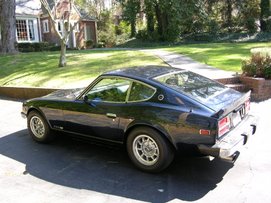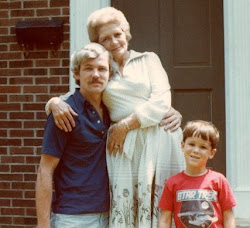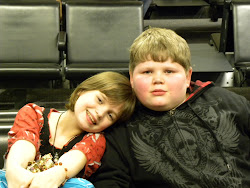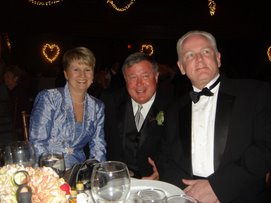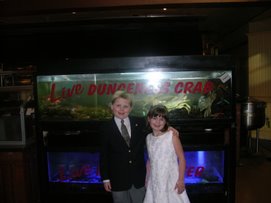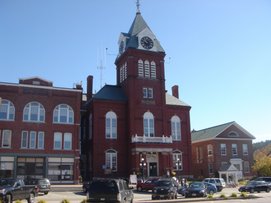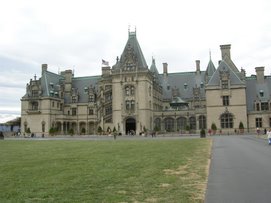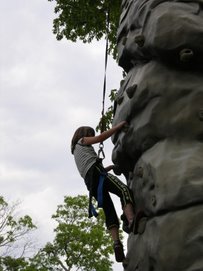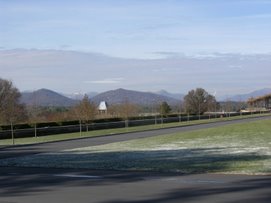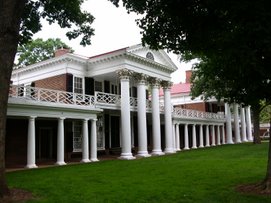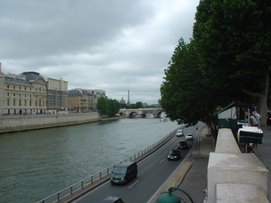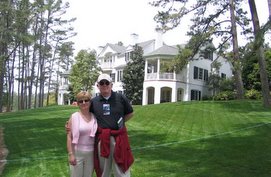Tragedy in Tucson

Listening to President Obama last evening was an interesting experience, especially since I was surrounded by my British wife and her parents, who are visiting us at the moment from the West Midlands of the UK.
On first reflection, I thought the President did an amazing job of keeping the focus on the victims and those around them that displayed remarkable courage under fire. He could have taken the opportunity to point fingers, to assess blame, to campaign for gun reform, etc. Instead, he spoke like the leader that this nation wants him to be. Marcus Buckingham wrote in his book, “The One Thing You Need to Know”, that “Great leaders rally people to a better future”. I believe that is exactly what President Obama attempted to do last night. He spoke about this country in terms that resonate with me and I suspect many Americans. We are a much better nation than we have acting over the past few years and we can raise the bar again if we collectively decide to put the rhetoric and divisiveness aside.
I remember as a child listening to President Kennedy’s inauguration speech. As he addressed those nations “who would make themselves our adversary”, he offered not a threat, but a request that we all look for “what problems unite us instead of belaboring those problems that divide us.” He said that “civility is not a sign of weakness, and sincerity is always subject to proof.” It is a speech that transcends time and one that I keep printed and close to me because I believe Jack Kennedy demonstrated extraordinary leadership that day in setting out a course for the future with a clear vision around what he believed this nation needed to do over the coming years.
Barack Obama is not Jack Kennedy – but that isn’t the point. Our President attempted last evening, under the most tragic circumstances, to reset the tone. To ask that we all take a moment to pause, to reflect on the dialogue, and to move forward with conversations that heal and not wound. Can we do it? Are we willing to take a step back and look at what happened in Tucson and agree that we don’t want to ever raise the discourse to a level of violence?
We don’t know what caused that young man to go off the deep end – to reach a mental state of mind that motivated him to purchase a gun and then randomly kill and wound a dozen innocent bystanders. I can’t point my fingers at Sarah Palin or anyone else and say that person was responsible for this horrible event. Nor can you, although many of you will try.
The point is not to dwell on what occurred, but to think seriously about what can be done to prevent another occurrence; i.e.: how do we as a nation raise the bar on how we engage one another? Throughout the history of our government, people have disagreed, and yet they found ways to communicate. Tip O’Neill, Ted Kennedy, Daniel Patrick Moynihan, George Bush Senior, Ronald Regan, Bill Clinton are just a few who come to mind. These are/were men who believed that compromise was not a sign of weakness, but the normal “give & take” expected of a government leader. What drove us to the current environment of “take no prisoners?”
Of course, I would be remiss if I did not at least mention the issue of guns; especially given I was surrounded by folks who long ago gave up the right to own handguns to ensure the safety of the majority of Brit’s. Yea, I know the argument. “Guns don’t kill people, people kill people.” But when over 14 million plus guns are sold in the U.S. in 2009, which is more than 21 of the worlds standing armies combined, and over 14 billion rounds of ammo are purchased and stockpiled, you got to wonder if this is exactly what our founding fathers envisioned when they wrote the Bill of Rights!
Amendment 2 of the Bill of Rights, which was written at the same time as the Constitution, reads that “A well regulated Militia, being necessary to the security of a Free State, the right of the people to keep and bear arms, shall not be infringed.” I certainly understand the context at the time the Constitution was written – we would fight another war with the UK in 1812 and it was won by citizens bearing arms. The West was won by citizens bearing arms. Jessie James and his gang were defeated in the streets of Northfield, Minnesota by citizens bearing arms. In fact, our history is filled with stories about courageous men and women who defended their homes and the homes of their neighbors. Guns are part of our history – no doubt. But do they have a place in our current history, especially when millions of them are finding their way into Mexico and literally arming the drug cartels there?
I don’t pretend to have the answer. I grew up with guns. I got my first single shot .22 cal when I was 11 or 12 years old. There were four boys and we all had rifles and shotguns and there always seemed to be plenty of ammo on those occasions when we actually fired our weapons, which actually wasn’t very often. We will spend hours in the woods or down by the river, but mostly guns were just something we carried because it was sort of cool to do so. We played lots of war games when we were kids and sometimes we would remove the bolt and use our rifles as our war guns. Don’t forget, I was born just 5 years after WWII ended and there was lots of surplus army gear to be had at the local Army Surplus Store. We had helmets, uniforms, tents, first aid kits, c-rations…………the store was like a warehouse and you could buy just about anything there for a buck or less. The guns were just part of our playtime, although we had all attended gun safety courses and would get our ears boxed severely if we did anything to violate the basic rules.
Vietnam and nine years in the Marines eventually took their toll and I lost my fascination for guns. I don’t own any today and haven’t since the day I got out the Marines in 1976. I can’t say I’ve ever missed them or felt a need to have one. Just not part of my personality I suppose. When I used to take Joe to the annual Scout camping trip where the kids got to shoot all sorts of older weapons, I never had an urge to participate. The old timer who used to bring the guns to the river for the Scouts to fire once asked me if I wanted to shoot a few rounds from an M14 he had on the table. He had heard that I was in the Marines in the late 60’s and knew that I would have qualified on the Rifle Range with the M14. I just smiled and said no thanks. He looked at me for a few moments and then moved on the next adult in the line. But I think he knew what was swirling about in my head and he understood.
If it were up to me, we would ban the sale of all handguns starting yesterday, and we would require all rifles and shotguns to be maintained at gun clubs. Not practical of course and it will never happen. Still, it would be nice to see some tighter regulation around the requirements for acquiring a handgun – things like requiring a permit, requirements for gun safety courses, background checks, registration of the serial numbers, etc. I would also like to see a requirement that anyone who purchases a handgun must first demonstrate that they have a secure place to maintain once it gets to their home or office. And finally, only folks with a need to carry a gun would be given a permit to do so, and carrying a gun without a permit would result in a significant fine and jail time, depending upon the circumstances.
Okay, enough of that rant.
Back to Tucson, and what we are going to do to raise the level of discourse. How would you suggest we get back on track? Love to hear your thoughts.

